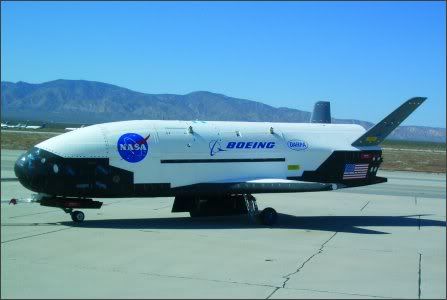
China Does Not Need to Start a “Space Race” with the U.S.
Former U.S. President Kennedy once predicted: “Whoever controls the universe, will control our world; whoever controls space, will control initiative in war.”* As a leader in space exploration, America knows full well that whoever seizes control of the skies will win the power to control information, the seas and airspace, thereby guaranteeing victory in future wars. As keen as he is to emphasize change, President Obama has not actually made any real adjustments to space strategy, which is still, and has always been, to advance the supremacy of the U.S. in space and to remain the head of a space alliance. But Obama is most likely shouting about promoting U.S. supremacy in space in order to divert attention from his true intention: to bring about technological innovation and economic transformation.
A change can be seen in Obama’s tactics as he strives for U.S. supremacy in space; there is more emphasis on proactive, pragmatic and truly comprehensive strategies for seizing America’s future supremacy. Obama’s new space program stems from his scheme to integrate civilian and military space flight resources and to maintain America’s competitive edge in space flight. But beyond this, it stems, more importantly, from U.S. concerns for bringing about technological innovation and for being at the forefront of the world. The Obama administration will challenge America to its limits, both in space flight and in a series of key technological fields. The U.S. will no longer be content to tally up the commercial profits made through upgrading and distributing new technology, but will be ever more concerned with speeding up its technological innovation and renewal, leaving all its foreign competitors far behind.
America is not, as some have opined, in decline under the Obama administration; its soft strategies are getting softer and its hard strategies harder. On soft political issues, such as relations with the Islamic world, Obama can seek international cooperation. He can talk humbly when trying to restore America’s image. But Obama’s actions cannot be humble, and he sticks to his principles with regard to nuclear issues, which impact America’s dominance.
Therefore, Obama is not rallying his troops to “seize control of space,” as some commentators have feared, nor is he attempting to escalate an ever-worsening arms race in space. On the contrary, the Obama administration has other things in mind, having strategically decided that, hereafter, international competition will still be a question of technological competition and quality of labor. Especially at this critical time, when economic recovery is sluggish and a myriad of reforms are in the offing, an annual expenditure of $60 billion or more could leave holes in Obama’s plans for economic recovery. Therefore, we cannot discount the possibility that Obama will put some of the most advanced space flight development programs on hold and go ahead with his plan to integrate military and civilian space flight resources. But, when faced with divergent opposition at home, he will need to pull out a new “space program” in order to satisfy public opinion. This ostensibly more ambitious space program will be used to conceal his true intent, that is, the integration of resources to bring about technological innovation and economic transformation. The Obama administration may find itself facing a prickly problem from now on: how to resolve conflicts and grievances between all parties involved, and how best to allocate existing space flight resources in order to kill these two birds, namely the new space plan and technological innovation, with one stone.
Given that the goal of Obama’s new space program is to promote technological innovation and economic transformation in the post-recession era, there is no need for China to chase after this “trial balloon” which America is floating, nor is there any need to start an arms race with America in space. At the present time, China’s most pressing task is to seize the opportunity for economic recovery in the post-recession era, make changes to its patterns of development and upgrade its industrial structures in order to meet the new material foundations which will be firmly established by new technological innovation. Moreover, as for there being no government control of space, China and the U.S. together could actively seek to promote negotiations on the control of armaments in outer space, even concluding and signing an “International Treaty against Anti-Satellite Weaponry.” They could establish effective supervision of outer space and coordinate their respective organizations, leading the world toward peaceful use of space and gradually eliminating the arms race in outer space.
*Editor’s Note: This quotation, supposedly made by John F. Kennedy, is widespread among Chinese publications and speeches. However, the actual quotation, made by Lyndon B. Johnson is: “Control of space means control of the world.”

Interesting article…are you sure that Obama’s teleprompter didn’t write this for you?
Best regards,
Gail S
http://www.backyardfence.wordpress.com/